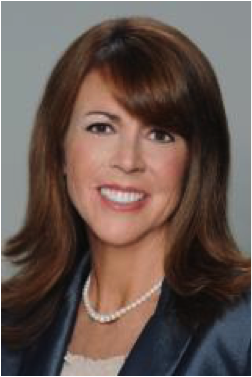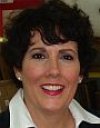 Stephanie M. Rhodes, MBA, GRI
Stephanie M. Rhodes, MBA, GRI
“I’m so passionate about this subject,” says Rhodes. “We don’t hire everyone, so I’m willing to share what is important for provisional brokers to ask and understand.”
Rhodes is the first hurdle in the interview process. Like a sports agent, she is a recruiter, visiting schools and interviewing brokers-to-be before, during and after the licensing process. She looks for rapport-building skills, people skills, self-motivation and drive to succeed.
“We put relationships first and the transactions will follow,” she says. “Sales skills can be taught.”
Most people come into real estate from another industry like teaching, nursing or retail sales, so the broker or recruitment specialist will look at your education, work history, attitude and expectations, and of course, whether you’re licensed and when you can start.
North Carolina is a state that only licenses brokers. Following an approximately eight-week course, you’ll have to choose a broker to work under for two years, and complete three additional 30-hour courses before you can become a full-fledged broker. Until then, you’re known as a provisional broker.
You probably want to know how much money you can make, known as the split - how much goes to the broker and how much goes to you when you sell a home. While the split is important, that shouldn’t be the first question you ask, advises Rhodes.
“If a recruit leads with commission splits,” she says, “I respond that we make great neighbors. You don’t think about what you’re going to get, and I’m already thinking you don’t have the right mentality. If your lead question is “What leads are you going to give me?” I think you’re expecting handouts and you won’t be able to build a long-lasting career. It gives me the wrong idea.”
Rhodes tells potential recruits that the brokerage can give you fish, or teach you how to fish so you can build a good career. “We do give leads, but we offer them their own personal coach. “Our managing broker is non-competing, so they focus on the new brokers. We help them with sales skills and how to build their sphere of influence.”
Then there are fees, which vary widely from broker to broker. “I do a lot of coaching; I just love to get people into the industry and I do tell them commission is good,” explains Rhodes. “You need to understand the fees - marketing, listing syndication to Realtor.com or Zillow, technology, franchise branding fees, errors and omissions insurance, MLS, etc. Most of these, you’ll pay no matter what firm you go to. You don’t know what you don’t know, so you might ask to see what a monthly invoice looks like or ask to see a commission check.”
For those reasons, Rhodes coaches recruits that they’ll need to have six to nine months of savings and about $2000 in start-up costs to cover school, licensing, MLS, errors and omissions. The franchise branding fee isn’t paid until a transaction closes.
While splits and fees are important, 100 percent of nothing is nothing, which makes training among the first questions to ask. “If they don’t get good training, they won’t have any business.”
The culture of the brokerage is also worth exploring. “You will work there every day, and if the fit isn’t right, you won’t want to go to the office. You really need to interview at different firms and attend company events.”
You might ask, “What makes you different?” “What kind of support do you have?” “Tell me about your culture.” “We have an in-house mortgage company, attorney, IT staff, social media director, and sales director,” offers Rhodes. “You have to talk about it up front. It’s all about the fit.”
Useful links and information:
North Carolina real estate requirements
Interview questions all new agents should ask

